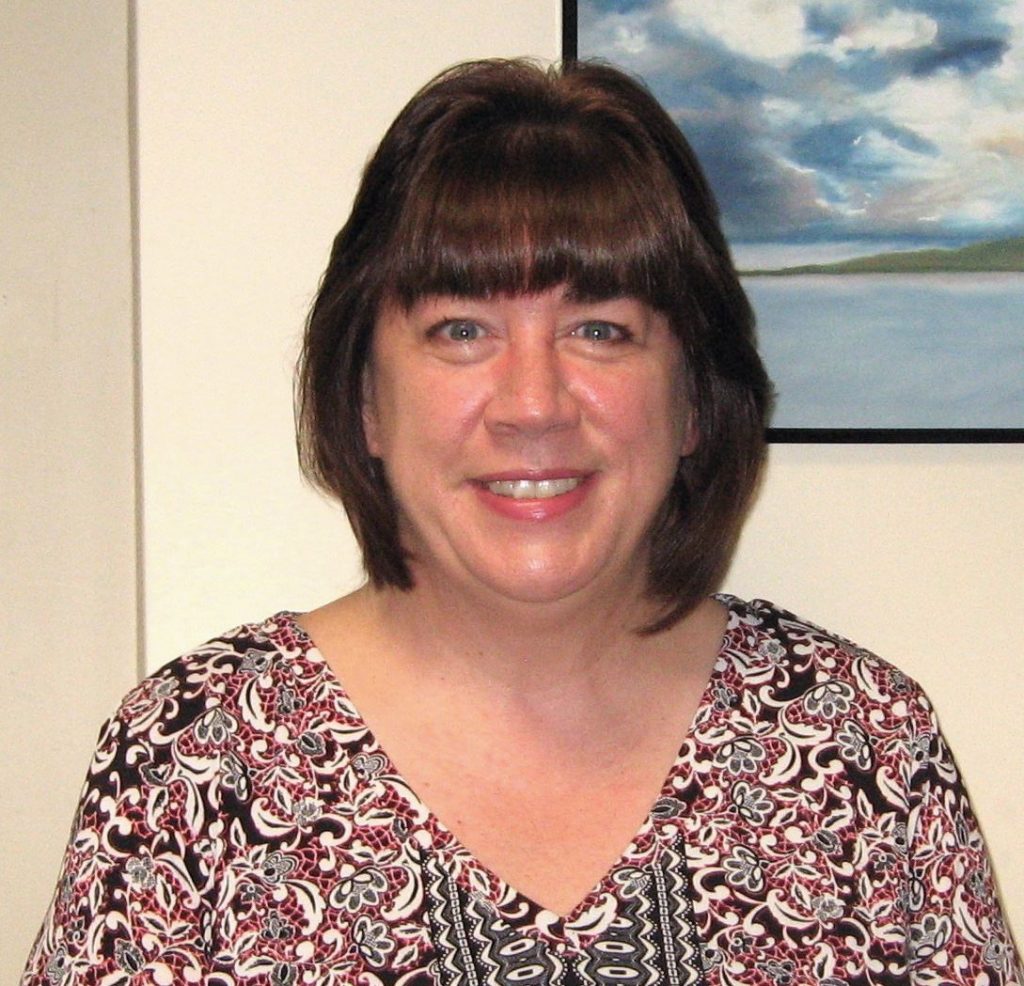Glufling-Tham Recognized for Bringing Clinical Education to Speech Pathology Students

By Molly Loughman
Infusing her class time with her expertise in clinical work as a speech pathologist and creating community practicum opportunities for the School of Communication‘s Communication Sciences & Disorders (CSD) students, Laura Glufling-Tham is helping to usher the department into a whole new era — and it’s not going unnoticed.
The clinical supervisor, teacher, and most recently, CSD’s Director of Clinical Education, Glufling-Tham received Emerson’s 2019 Helaine and Stanley Miller Award for Outstanding Teaching this spring. The award, which recognizes an individual who displays high academic standards established by the faculty members, was given to Glufling-Tham for her distinguished work as a creative and dedicated teacher, and for her ability to encourage students to master their field of study.
“I think the students love the fact that she’s really clear, really explicit about her expectations. She’s very informative, and clinical work is an area students have not had a lot of exposure to up until this time. They’re very eager for her knowledge and she provides it in a way that’s accessible,” said CSD Chair Joanne Lasker. “So, she’s really exceptional in that way.”
Glufling-Tham has clinical and teaching experience in adult neurogenic disorders, including aphasia, dysarthria, apraxia of speech, cognitive-linguistic impairments, and dysphagia. She began working at Emerson in 1997 as a part-time clinical instructor after working eight years as a speech pathologist. In 2007, she began teaching graduate courses on aphasia and clinical methods, along with an online summer course. In 2016, she became full-time. These days, she still teaches CSD’s on-ground Clinical Methods III course and the Cognitive-Communicative Disorders course.
To enrich the clinical learning experience in the classroom, Glufling-Tham brings in guests, such as clients and specialized speech pathologists. Her students also read novels and watch documentaries about people with communication disorders, and are then tasked with developing a detailed case study around each.
“My focus is to blend theory, like research and evidence-based practice, and tie that together with clinical practice, so they get some practice working that through collaboratively with each other,” said Glufling-Tham, noting she has personal experience with communication disorders, as it affects some of her family members. “So, I feel like I can also share with the class the family perspective. Our students are great — they’re very mature, very well-educated, but they don’t necessarily have that point of view.”
Glufling-Tham divides her time between teaching and overseeing the clinical placements of both the on-campus and online graduate students through the Speech@Emerson program, and also examines how CSD’s curriculum supports clinical learning. As director, Glufling-Tham is a major networker, staying in touch with students and professionals in the field. CSD sends its students to highly prized sites in Boston for community practicum, largely thanks to Glufling-Tham’s ability to cultivate CSD’s location sites and systematizing its relationships to them.
“So we now have agreements between our placement sites that she’s instituted that are more formal that say precisely what the expectations are on both sides — That’s all new. That’s all something that she brought in within the last year,” said Lasker.
“We [the CSD department] pride ourselves on being generalists. We train students to achieve certification,” Lasker said. “We want them to be able to work with any kind of client in any sort of situation with any sort of communication impairment or challenge. We really want them to feel competent to analyze critically any potential clinical situation they’re in and to support the needs of the client and the family in any context.”
Putting it into Practice
CSD has about 90 on-campus students who are in constant need of site placement. The department places students cyclically in January, May, and September, in a variety of sites for community practicum, including: public, charter, private and specialized schools; private practices; early intervention practices in clients’ homes; skilled nursing facilities; rehabilitation hospitals; and acute care hospital settings.
“You can specialize after graduation and focus on one particular area or age group, but really the point of being here is an opportunity to expand your thinking, do different types of clinical thinking across the age span, across disorder type, across setting — because you never know what might really speak to you. So, I try to take that lens as well in terms of the placements,” said Glufling-Tham.
In addition to the Helaine and Stanley Miller Award for Outstanding Teaching, Emerson recognized Glufling-Tham this year through its Star Award – acknowledging her devoted efforts in launching CSD’s new online program, Speech @ Emerson. In less than a year, CSD has doubled the size of its master’s program by adding the online program, which is attracting students from all over the country.
“For her on-campus site placement, she’s really in touch with the community locally. For the Speech @ Emerson students, who could be anywhere around the country, Laura is helping us to refine the methods by which we determine whether a site is appropriate or not for a student. We were very concerned that the things we do on-campus were able to be incorporated into the Speech @ Emerson program, and she’s helped us do that,” said Lasker.
“I love being here. The department has always been supportive of me and hopefully I’ve been supportive of the department. We all work very collaboratively and mutually for the benefit of the students,” said Glufling-Tham. “So, while I’m grateful to be acknowledged, really it’s a team effort.”
Categories